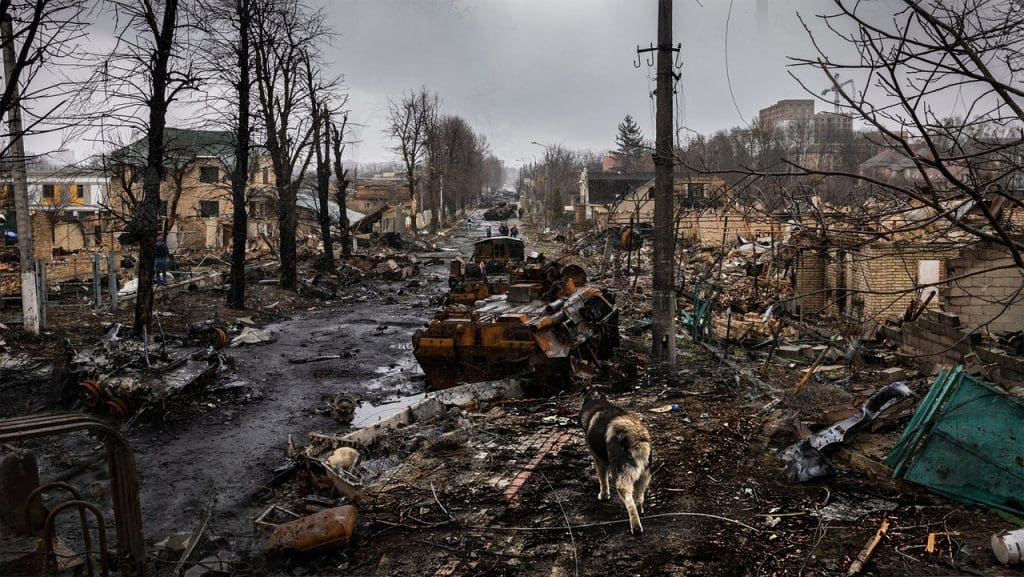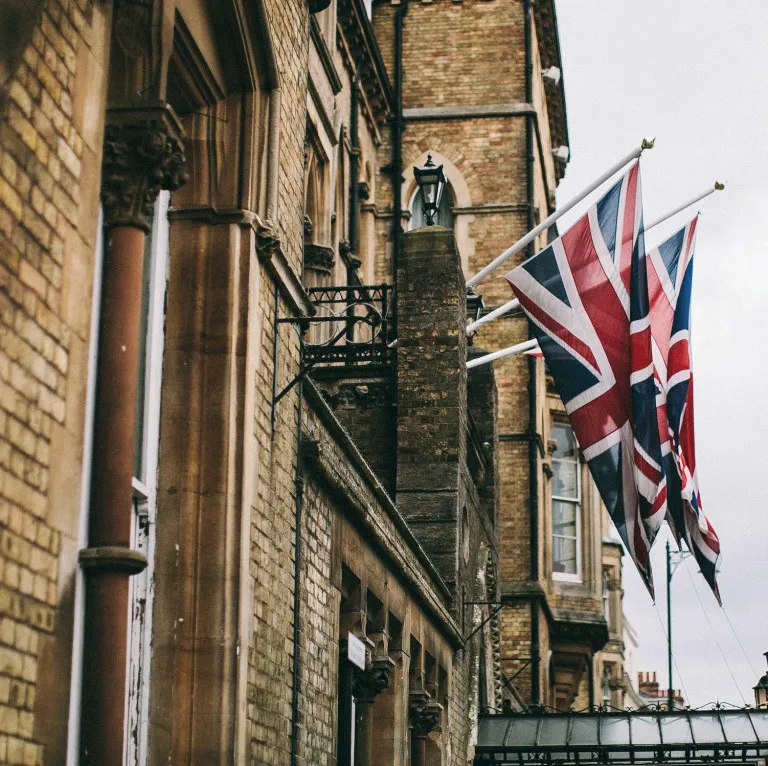Visa & Immigration Support for Iranians Stuck in the UK
Owing to the ongoing conflict in Iran, many Iranian nationals in the UK on temporary visas are uncertain and fearful about returning home. At the Immigration Advice Service, we understand the challenge you face and are here to help you navigate this difficult time.
Whether you are in the UK on a visitor visa, family visa, student visa or work visa, we can help you explore options and eligibility for visa extensions, switching visas, claiming asylum or applying for an extension to stay under Humanitarian Protection or Discretionary Leave to Remain. Call +44 (0)333 414 9244 or contact us online for immediate assistance.
Read our 1001 reviews
Request a call back from our immigration experts
Benefits of Choosing IAS’ Immigration Lawyers
At IAS, we understand that every case and client is unique, so we provide bespoke assessment and support to each client. With us, you get a dedicated immigration lawyer who is dedicated to ensuring your application is successful. Enjoy the following benefits with IAS:

Compassionate support from an experienced immigration lawyer dedicated to your success



Support in gathering supporting documents and completing a high-quality application.



A personalised Letter of Representation to help compile a compelling case for approval



Continued support from your lawyer in the event of any complications.
Services we Provide
Expert assistance no matter your situation
What are the next steps for Iranian nationals to stay in the UK?
Eligibility for renewal, asylum and humanitarian protection can be difficult to understand. Our guide for Iranian nationals stuck in the UK offers a complete overview of your options to remain and legally extend your permissions to avoid the fast-moving conflict in Iran. We cover:
- Options for Iranians to stay in the UK
- Our services
- Duration of stays and processing times
- Eligibility and requirements
- Asylum applications
- Types of leave to remain under humanitarian protection and exceptional circumstances
- Visa extensions under exceptional circumstances
- Application and appeals processes
Extending your permissions (without exceptional circumstances)
If you can afford to continue your stay in the UK without financial support and are eligible, you may be able to:
- Extend your current visa permissions
- Switch to another category of visa
Extending your permissions (with exceptional circumstances)
If you are not eligible to renew your current permissions or apply for another visa and do not qualify for asylum, you may:
- Apply for an extension of your visa permissions under exceptional circumstances
- Apply for UK leave to remain under:
- a) Humanitarian protection (HP)
- b) Discretionary leave to remain (DLR)
- c) Limited leave to remain (LLTR)
- c) Leave outside the rules (LOTR)
Humanitarian protection, discretionary leave to remain, limited leave to remain and leave outside the rules are immigration statuses that typically grant further rights and benefits than a typical visa extension, where your permissions remain the same as your original visa. If you are granted one of the above by the UK government, you may be permitted to work and claim public funds.
If you risk persecution by returning home, you may qualify for:
- Asylum
Reliable immigration advice
At IAS, we have a long history of helping people affected by crisis situations. Our dedicated team of immigration lawyers understands the urgency and sensitivity of these situations, and we are passionate about offering quick, reliable support to those in need.
- We understand that in times of crisis, time is of the essence. That’s why we offer quick assistance, including same-day or 24-hour advice for those in critical situations. Our goal is to help you resolve your immigration matters as swiftly as possible so that you can focus on your safety and well-being.
- We provide tailored advice based on your individual circumstances. No two cases are the same, which is why our lawyers take the time to understand your needs and develop a legal strategy that works for you. From visa extensions to asylum claims, we will walk you through the process and ensure you understand every step.
- Our team at IAS have already helped guide over 9000 immigration applications to success and are backed by decades’ worth of experience in international immigration. During the crisis in Ukraine, we supported many affected Ukrainian citizens with resettlement.
How long can you stay in the UK?
| Route | Duration of Leave | Estimated Processing Time |
| Extension of Visitor Visa | Up to 6 months | Typically processed within 3 weeks |
| Extension of Student Visa | Dependent on the length of the course | Usually processed within 8 weeks |
| Switching to a Graduate Visa | 2 years (or 3 years for doctoral graduates) | Processed within 8 weeks |
| Limited Leave to Remain (LLR) | Normally 2.5 years (renewable) | Typically 8 weeks, but can vary |
| Article 8 (Family/Private Life) | Normally 2.5 years, with the possibility of extension | Usually processed within 8 weeks |
| Mandate Resettlement Scheme | Usually granted for 5 years (leading to settlement) | Can take several months to a year |
| Discretionary Leave to Remain (DLR) | Usually granted for 2.5 years | Typically processed within 8 weeks |
| Humanitarian Protection | Granted for 5 years | Usually processed within 6 months |
| Asylum (Refugee Status) | Granted for 5 years | Typically 6 months to 2 years depending on complexity |
| Leave Outside the Rules (LOTR) | Typically 2.5 years | Usually processed within 8 weeks |
| Indefinite Leave to Remain (ILR) | Can apply after 5 years under certain routes | Usually processed within 8 weeks |
Claiming Asylum
Asylum claims have specific criteria relating to a risk of serious harm or persecution against you. If you entered the UK illegally after July 2023, you cannot seek asylum in the UK. To be granted asylum, you must be in the UK legally, and affected by the change in circumstances in Iran since you left. You must meet all the criteria outlined in the 1951 Refugee Convention:
Well-founded fear of persecution
You must evidence a well-founded fear of prosecution as the foundation of your application to seek asylum in the UK.
Persecution Based on Specific Grounds
You can only qualify for an asylum claim if returning home would represent a significant risk for you under one or more of the five core categories outlined.
- Race
- Religion
- Nationality
- Political opinion
- Membership of a Particular Social Group
Unable or unwilling to seek protection in your home country
You must show that your country is unwilling or unable to grant you effective protection. The UK may reject an asylum claim if your home country can safely relocate you to a safe area of Iran.
Be outside your home country
To apply for asylum, you must be outside your country of origin, and you must be in the UK at the time of your claim.
If you do not meet the foundational criteria for an asylum claim, you may instead qualify for humanitarian protection, granting you leave to remain in the UK with more rights and benefits than a visa extension.
Asylum documents required
When applying for asylum, you should prepare the following documents:
- Completed asylum application form: Asylum application form, usually submitted online or at a designated location.
- Proof of identity: Passport, national identity card, or other valid identification.
- Personal statement: A detailed account of your fear of persecution, specifying how it meets the asylum criteria.
- Country condition reports: Up-to-date information about conditions in your home country, especially regarding the threats you face.
- Medical records: Documentation of any physical or psychological injuries sustained due to persecution.
- Witness statements: From friends, family, or professionals who can attest to your situation.
- Any other relevant evidence: This can include media reports, police reports, or court documents related to your case.
- Evidence of residence in the UK: Such as utility bills, bank statements, or rental agreements


Extending your stay in the UK with fewer restrictions
If you are refused asylum or ineligible for asylum, a visa extension may seem the most natural thing to do during this time. However, depending on your circumstances, it may be possible to stay in the UK longer term with more permissions, such as permission to work. We examine extending your leave under Humanitarian Protection, Discretionary Leave to Remain (DLR), Limited Leave to Remain (LLTR) and Leave Outside the Rules (LOTR)
Extension of Leave to Remain under Humanitarian Protection
Humanitarian protection is an immigration status provided to people who could be under ‘serious harm’ if they were to return home. Generally, serious harm might be the threat of:
- Injury from armed conflict or violence.
- Torture or inhuman treatment.
- Indiscriminate violence, such as missile strikes or bombing.
If granted Humanitarian Protection, you would receive more extensive rights compared to a standard visitor visa or student visa extension, including:
- Permission to Work
- Access to Public Funds
- Leave to Remain
- Healthcare Access
Required Documents for Humanitarian Protection
- Completed application form: Usually, the asylum application form (Asylum Interview).
- Proof of identity: Valid passport or identity card.
- Detailed personal statement: Describe the specific risks you face if return to your home country.
- Country condition reports: Recent reports from credible organizations outlining the dangers in your home country.
- Medical documentation: If applicable, any medical records proving injuries or trauma related to the conditions in your home country.
- Personal testimonies: If applicable, accounts from witnesses or people familiar with your situation.
- Supporting documents: Any police reports, letters, or communications supporting your risk claim.
- Evidence of residence in the UK: Documents showing your time in the UK, such as utility bills, rental agreements, etc.
Application Process and Evidence for Humanitarian Protection
Applying for Humanitarian Protection is more complex than a visa extension and requires significant evidence of the risk you face if you return home. However, the benefits and rights are far more substantial, allowing for a more stable stay in the UK. You can demonstrate these risks with evidence.
Discretionary Leave to Remain (DLR)
Discretionary Leave to Remain (DLR) is a form of permission to stay in the UK granted to individuals who do not meet the strict criteria for asylum or humanitarian protection but who have compelling reasons that make it unsafe or unjust for them to be removed from the country.
Discretionary Leave to Remain is a temporary immigration status that allows individuals to remain in the UK under exceptional circumstances. It is used when the UK government acknowledges that, although someone does not qualify as a refugee or for humanitarian protection, there are compelling humanitarian or personal reasons that justify granting them leave to remain in the UK.
- Not based on asylum: DLR is distinct from asylum claims, and you do not need to prove a well-founded fear of persecution on specific grounds (race, religion, nationality, etc.).
- Case-by-case basis: It is applied to particularly compelling circumstances that fall outside the usual immigration categories.


Eligibility for Discretionary Leave to Remain
You may be eligible for DLR if you have personal, humanitarian, or compassionate circumstances that the Home Office deems sufficient to allow you to stay in the UK. Some common grounds for DLR include:
- Medical Grounds: If you have a serious medical condition and your return to your home country would significantly worsen your health due to lack of adequate treatment.
- Family Life: If you have strong family ties in the UK, particularly where children are involved, and removing you would violate your rights under Article 8 of the European Convention on Human Rights (the right to family and private life).
- Child Welfare: Children who have been in the UK for a significant period and would face disruption or hardship if forced to leave.
- Risk of Inhuman or Degrading Treatment: If you would face conditions upon return to your home country that amount to inhumane or degrading treatment, even if they do not qualify as persecution.
- Victims of Trafficking or Modern Slavery: If you have been a victim of human trafficking or modern slavery and need protection while you recover or cooperate with law enforcement.
- Unaccompanied Asylum-Seeking Children: If an unaccompanied child does not qualify for asylum, DLR may be granted if returning them would put them in harm’s way.
Holders of DLR can work, study, and access healthcare, but may face restrictions on travel.
Required Documents for DLR
- Completed application form: Typically, Form FLR (FP) for family and private life applications.
- Proof of identity: Valid passport or national identity card.
- Evidence of your current immigration status: Previous visa or biometric residence permit (BRP).
- Personal statement: A detailed explanation of why you cannot return to your home country, outlining your specific circumstances.
- Evidence of family ties: Birth certificates or adoption papers, marriage certificates, and any relevant correspondence showing your family relationships in the UK.
- Medical documentation: Reports from medical professionals if you have serious health issues.
- Country condition reports: Evidence from credible sources (e.g., NGOs, human rights organizations) detailing the situation in your home country.
- Letters of support: From family, friends, or community members detailing your situation and the potential impact of your removal.
- Financial evidence: Bank statements or pay slips to demonstrate your financial situation.
Leave Outside the Rules (LOTR)
LOTR can be granted for family and private reasons if it is a breach of Article 8 of the European Convention on Human Rights (ECHR) for you to leave the country. UKVI caseworkers must determine that:
- You cannot meet the requirements for a family visa
- You, your partner, or your child may experience terrible consequences if you are removed from the UK


LOTR is a temporary permission to stay in the UK. It is usually issued as a last resort when all other legal avenues have been exhausted.
Limited Leave to Remain (LLTR)
Limited leave to remain is an immigration status whereby leave is granted for a pre-defined period of time. You may be granted limited leave to remain or temporary leave to remain if:
- you are stateless, and can’t return to Iran because you are not recognised as a citizen of any country
- Granted to asylum seekers who do not qualify for refugee status but have a need for protection
- Issued for humanitarian protection if at risk of serious harm in the home country
- Granted under Article 8 ECHR for family or private life established in the UK
- Granted for medical or other exceptional reasons (e.g., severe medical conditions not treatable in home country)
What if your family is still in Iran, and you don’t meet the requirements for their entry to the UK to join you? Are there exceptional circumstances?
Given the current situation in Iran, various exceptional circumstances may impact an individual’s application to join a spouse or dependent in the UK:
- Unsafe Conditions: If conditions in Iran are deemed unsafe due to armed conflict or other threats, this may strengthen the case for urgent visa application processing.
- Family Emergencies: Medical emergencies, bereavement, or the need for caregiving responsibilities can be compelling reasons for expedited applications.
- Psychological Impact: The trauma and psychological impact of living in a conflict zone may also be considered in the application process.
Family Reunification


Mandate Resettlement Scheme
The Mandate Resettlement Scheme allows refugees to be resettled in the UK if they have a close family member in the UK willing to accommodate them. To be eligible, you must be recognised refugees by the UNHCR and assessed as needing resettlement. The scheme prioritises immediate family including:
- minor children
- spouses
- parents
- grandparents over 65
Wider family is considered only in exceptional circumstances.
Article 8 (Right to Family/Private Life)
Under Article 8 of the European Convention on Human Rights, which protects the right to respect for private and family life, individuals may have grounds to request that their family members be allowed to join them in the UK. If an individual can demonstrate that their separation from family members would cause significant hardship or infringe on their human rights, they may seek special permission.
- Granted to individuals with strong family life (e.g., spouse, children) in the UK.
- Granted if removing someone would disrupt their family life or private life in the UK.
- Available if a child has lived in the UK for 7 years or more, or if there are strong family ties.
- Based on the best interests of the child in many cases involving minors.
- Granted if deportation would cause disproportionate harm to the individual’s family or private life.
Typically, those applying under Article 8 will be granted either discretionary leave to remain, limited leave to remain or leave outside the rules.
Standard visa extensions & exceptional circumstances
Extending your visa can be straightforward or complex, depending on your situation. Some visa types, such as a visitor visa, are not intended to be renewed and can only be renewed under exceptional circumstances.
Student visa durations are generally tied to the course length. You may switch visas for further study or graduate work. Worker visas are tied to various salary and job requirements. If you continue to meet the terms of your visa and are a skilled worker paid more than the salary threshold, you will likely be able to extend.
When ‘exceptional circumstances’ may mean the Home Office grant a visa extension?
Exceptional circumstances include:
- medical grounds
- family emergencies
- unsafe conditions in your home country
- Unforeseen Travel Restrictions
- Humanitarian Reasons
- Pending Legal Matters
- Educational Disruption (for Students):
- Financial Hardship
- New or Extended Employment Contract
- Birth or Care of Children
- Ongoing Relationship with a UK National or Resident
- Unaccompanied Minors
Exceptional circumstances refer to specific situations that allow individuals to apply for an extension of their current visa type despite general rules against extensions (such as visitor visas).
Substantial evidence must be presented to prove each exceptional circumstance. An extension under exceptional circumstances is different from DLR or Humanitarian Protection.
Visitor Visa Extensions
Visitor visas are designed for short-term stays of up to six months for purposes like tourism, visiting family, or short-term business trips, after which you must return to your home country. Many of the documents you provided in your original application for leave to enter the UK will have been to prove your ties to your home country. Thus, it is rare for extensions to be processed for visitor visas. However, exceptional circumstances exist that allow you to extend.
If you apply for an extension to your visitor visa, you cannot work or rely on the state for funding. You may be able to rely on support from friends or family during your stay. While renewing your permissions in the UK might be the quickest option, a Visitor Visa will leave you with limited options and no real long-term plan to leave Iran.
You may apply for an extension under humanitarian protection, which adjusts your permissions in the UK to reflect your situation.
Student Visa Extensions
Students studying in the UK and with an expiring visa may be eligible to apply for a longer extension under the terms of leave to remain. You may be granted an extension if you demonstrate a need to stay due to safety concerns or ongoing study. If you have completed your studies, you may also be eligible to apply for a graduate visa.
Like, all UK visa types, various exceptional circumstances are accounted for when the Home Office assesses your application for leave to remain. Still, you must prove you can meet the terms of your visa permissions.
You may be eligible to apply for Discretionary Leave to Remain or Humanitarian Protection for less restrictive permissions to stay.
Work Visa Extensions
Iranian nationals working in the UK on a Skilled Worker Visa, Senior or Specialist Worker Visa, or similar may continue to work in the UK and extend their visa as long as they still meet the salary and job requirements. Your permissions for a work visa do not change.
You will need to meet the terms of your visa. If, however, you no longer meet the conditions of your visa because your salary is below the threshold or the ‘going rate’ requirement, then you may apply for Leave to Remain, such as Discretionary Leave to Remain, by detailing your exceptional circumstances, or Indefinite Leave to Remain if you have lived and worked in the UK for 5 years on a qualifying work visa.
Family Visa Extensions
Your eligibility for a family visa extension is based on your dependent’s permission to stay in the UK. For you to hold and extend a family visa, your dependent must be a British citizen or have indefinite leave to remain status. Regardless of the situation with your home country, if either of these still applies and you are a spouse in a genuine and subsisting relationship or a dependent child, your status will remain unchanged. For those on a Skilled Worker Dependent Visa, you can remain in the UK and extend your permissions if your spouse or dependent still qualifies for their visa.
While family visa extensions are typically tied to the visa holder you are dependent on, there are also exceptional circumstances where you may apply in the event you don’t meet all the entry requirements, for example, if your partner requires a certain salary for their family to stay or to meet their visa requirements, and loses their job, including:
- Medical Grounds
- Family Emergencies
- Unsafe Conditions in Your Home Country
- Financial hardship such as losing your job
- Impact of External Conflicts
- Children’s Welfare


Factors Impacting Processing Duration for Claims
Several factors can affect the duration of processing an asylum claim or application under humanitarian protection, including:
- Complexity of the Case: Claims involving intricate backgrounds or unique circumstances may require more extensive review.
- Country of Origin: Some nationalities may face longer processing times due to the Home Office’s familiarity or lack thereof with specific country conditions.
- Quality of Documentation: Incomplete or unclear documentation can lead to delays as the Home Office may request further information.
- Backlogs and Workload: An increased number of applications can create backlogs within the asylum system, delaying decisions.
- Interviews and Assessments: Scheduling and conducting interviews with applicants can add time to the process, especially if follow-up assessments are needed.
- Interruption in Communication: Miscommunication between the applicant and the Home Office can delay responses or requests for additional information.
- Changes in Policy or Legislation: Shifts in immigration law or policy can also affect processing times, as the Home Office may need to adjust its procedures.
What Happens If My Application Is Denied?
If an asylum claim, or application for leave to remain is denied, individuals have several options to consider:
- Right to Appeal: Applicants generally have the right to appeal the decision. The appeal must be lodged within a specified timeframe (usually 14 days) of receiving the decision.
- Judicial Review: In some cases, individuals may seek a judicial review if they believe the decision was made unlawfully or improperly.
You may still have the right to remain in the UK if other factors such as family ties or other humanitarian grounds exist.
Appeals Process
The appeal process for challenging a denied asylum claim or application to remain in the UK involves the following steps:
- Notice of Appeal: The applicant must submit a notice of appeal to the relevant tribunal, outlining the reasons for contesting the decision.
- Hearing: An oral hearing may be scheduled, where the applicant can present their case and provide additional evidence. This is typically the case for asylum and humanitarian protection cases, however, for LLR and DLR, the appeal may be decided based on written submissions without a hearing.
- Decision: The tribunal will issue a decision, which can either uphold the denial or overturn it, granting asylum. Similar to asylum appeals, decisions on humanitarian protection, LLR, or DLR appeals can also either uphold the refusal or grant the application.
Why Choose IAS
With years of experience in immigration assistance and asylum cases, our experienced lawyers are well-placed to handle complex cases. We can help with:
- Asylum claims
- Refusals & appeals
- Visa applications & extensions
- Legal proceedings
- Advice
- Eligibility assessments
With the help of an expert team, you can ensure your application is mistake-free, timely, and meets the requirements of the Home Office.
Offering a bespoke, personal, and attentive service, our immigration attorneys can help you determine your next steps to stay in the UK. Our professional, compassionate immigration service offers you the best possible chance of success. Call IAS today on +44 (0)333 414 9244 or get in touch online to get started.
How Our Immigration Lawyers and Advisors Can Help
At IAS, we are committed to helping those affected by crises and providing compassionate and efficient legal support. Whether you seek a temporary visa extension or more permanent solutions like asylum, our immigration experts can guide you through every step.
Legal Support
- We offer legal assistance to represent you in judicial reviews, appeals and in court for complex cases like asylum claims. No matter your needs, our team can support you with world-class legal assistance.
- Representation in the courts
- Reviews & appeals
- Full guidance
Apply with us
- If you need to submit an error-free application, our reliable lawyers are on hand to help. We can fill out your application on your behalf, assist with compiling documents and liaise with the Home Office for you.
- Error-free applications
- High success rate
- Full support
Urgent Reviews
- If you have an urgent or time-sensitive requirement, our team can turnaround your request quickly and accurately with our fast-track service. Get in touch today for immediate advice and assistance on your situation.
- Fast-track services in as little as a 24 hours
- Liaise with the Home Office for you
Table of Contents
Table of Contents will appear here.Legal Disclaimer
The information provided is for general informational purposes only and does not constitute legal advice. While we make every effort to ensure accuracy, the law may change, and the information may not reflect the most current legal developments. No warranty is given regarding the accuracy or completeness of the information, and we do not accept liability in such cases. We recommend consulting with a qualified lawyer at Immigration Advice Service before making any decisions based on the content provided.
Frequently Asked Questions
Penalties for overstaying your UK visa can be severe, including fines, removal, deportation and even imprisonment. Your entry to the UK could be affected if you overstay your visa. Permissions may be granted for leave to remain while awaiting the outcome of your application, so it is important to understand your options, your rights, apply early and stay in control of your immigration situation to avoid overstaying.
The best option for staying in the UK depends on your unique circumstances, and what you are eligible for. Our immigration lawyers will exhaust each option with you and explain which ones offer you the best chance of success and security moving forward.


What our clients are saying
How our UK Immigration Lawyers can help
At the Immigration Advice Service our lawyers specialise in a wide range of UK visas, nationality and asylum applications and have represented clients in various successful complex and high-profile cases.















